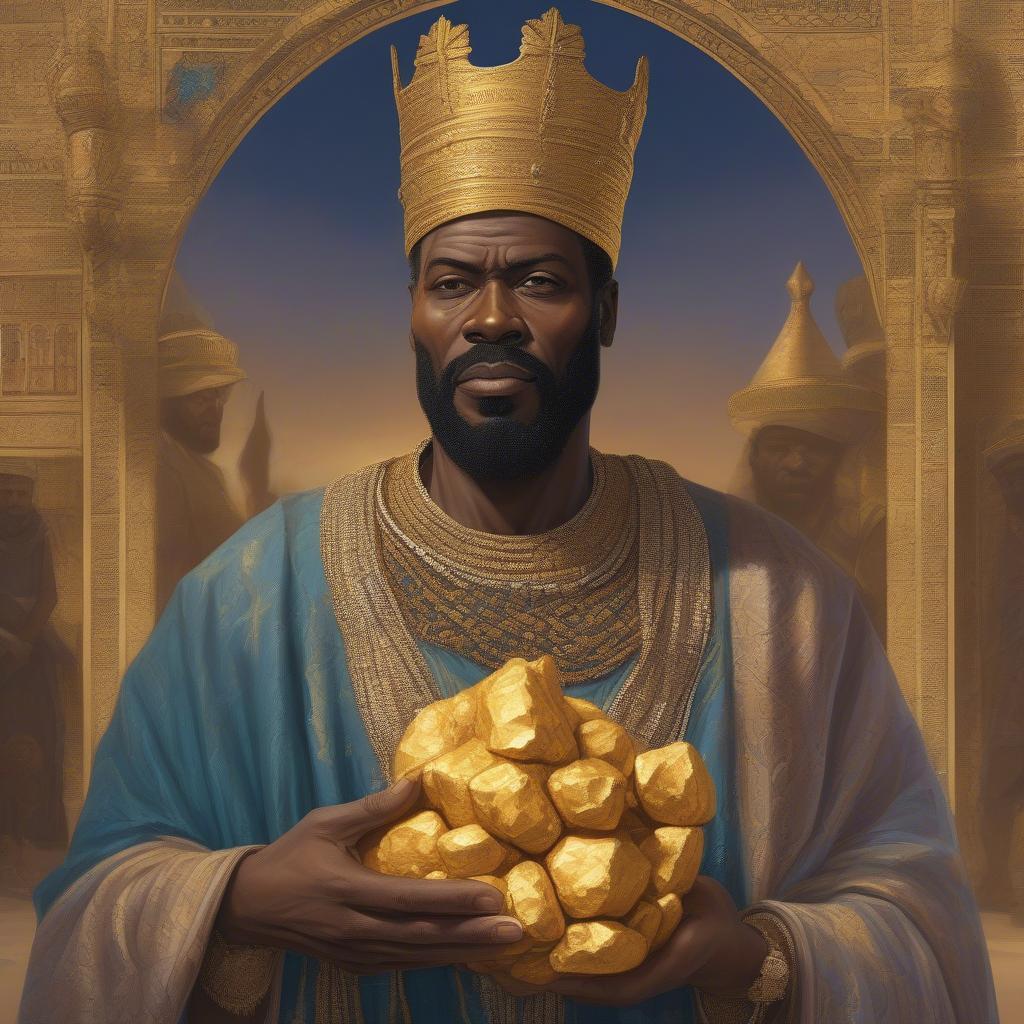
Determining the wealthiest person in history is a surprisingly complex task. While we can easily access the net worth of today’s billionaires, calculating the fortunes of historical figures requires careful consideration of economic contexts, fluctuating currency values, and the very definition of wealth itself. Simply converting historical fortunes to modern currency using inflation calculators often falls short, as it fails to account for the vastly different purchasing power and economic structures of past eras. So, who is the likely candidate for this prestigious, albeit posthumous, title?
Table Content:
Uncovering the Richest Person of All Time
While many names come to mind when discussing historical wealth – from emperors like Augustus Caesar to industrialists like Andrew Carnegie – one figure consistently tops the lists: Mansa Musa, the 14th-century ruler of the Mali Empire. Musa’s wealth stemmed from his kingdom’s abundant gold and salt resources, commodities highly valued throughout the medieval world. His famous pilgrimage to Mecca in 1324, during which he reportedly distributed vast amounts of gold, dramatically impacted the economies of the cities he passed through, even causing gold inflation in Cairo.
The Challenges of Quantifying Historical Wealth
However, quantifying Musa’s wealth remains a challenge. Historical accounts, though impressive, often lack precise figures. Describing his riches as “incalculable” and “beyond measure,” these accounts underscore the sheer scale of his fortune but offer little concrete data for modern economic comparisons. Historians and economists have attempted to estimate his wealth, with some placing it in the trillions of dollars in today’s value. This astronomical figure reflects not only his personal holdings but also the overall economic output and resources controlled by the Mali Empire under his rule.
Beyond Gold: Wealth as Power and Influence
It’s crucial to understand that wealth in Musa’s era signified more than mere monetary value. It represented power, influence, and the ability to command resources and labor. Musa’s wealth allowed him to invest in education, build mosques and libraries, and establish Timbuktu as a leading center of learning in the Islamic world. His reign marked a golden age for the Mali Empire, fostering trade, cultural exchange, and prosperity across West Africa.
 Mansa Musa Holding a Gold Nugget in the Mali Empire
Mansa Musa Holding a Gold Nugget in the Mali Empire
Comparing Historical Figures Across Eras
Comparing Musa’s wealth to that of other historical figures like Genghis Khan or Augustus Caesar presents further complexities. While Genghis Khan controlled a vast empire, his wealth was primarily derived from land and conquest, making direct comparisons with Musa’s gold-based economy difficult. Similarly, Augustus Caesar, at the height of the Roman Empire, commanded immense resources but operated within a different economic system.
The Significance of Context in Evaluating Wealth
“When comparing historical figures across different eras, it’s essential to consider not only the numerical value of their wealth but also its impact on their respective societies,” says Dr. Eleanor Vance, a professor of Economic History at the University of Cambridge. “Mansa Musa’s wealth, for instance, significantly influenced trade routes and economic development across North Africa and the Middle East.”
 Comparing the Wealth of Historical Figures Across Different Eras
Comparing the Wealth of Historical Figures Across Different Eras
The Enduring Legacy of Mansa Musa
Regardless of precise figures, Mansa Musa’s legacy as one of history’s wealthiest individuals remains undisputed. His story highlights the immense wealth of pre-colonial Africa and the complex factors that contribute to historical economic power.
Beyond Riches: A Ruler Who Shaped History
“Mansa Musa’s story transcends mere wealth accumulation,” adds Dr. Kwame Nkrumah, historian specializing in African history at the University of Ghana. “He represents a powerful leader who utilized his resources to promote education, culture, and religious tolerance, leaving a lasting impact on the history of West Africa.”
 The Enduring Legacy of Mansa Musa and the Mali Empire
The Enduring Legacy of Mansa Musa and the Mali Empire
In conclusion, while definitively pinpointing the wealthiest historical figure remains a subject of ongoing debate, Mansa Musa stands as a compelling contender for this title. His immense wealth, derived from gold and salt, combined with his impactful pilgrimage to Mecca, solidified his place in history not only as a wealthy ruler but also as a significant figure in shaping the economic and cultural landscape of medieval Africa. Who is the richest person in history? The evidence strongly suggests it was Mansa Musa.
FAQ
Who is Mansa Musa? Mansa Musa was the 14th-century emperor of the Mali Empire in West Africa, known for his immense wealth and his famous pilgrimage to Mecca.
How did Mansa Musa become so wealthy? The Mali Empire controlled significant gold and salt mines, which were major sources of wealth in the medieval world.
How much was Mansa Musa worth? It’s impossible to give an exact figure, but historians estimate his wealth to be in the trillions of dollars in today’s value.
Why is it difficult to compare Mansa Musa’s wealth to other historical figures? Different economic systems, fluctuating currency values, and the lack of precise historical records make direct comparisons challenging.
What is Mansa Musa’s legacy? Mansa Musa is remembered not only for his wealth but also for his contributions to education, culture, and the spread of Islam in West Africa.
Who is considered the richest person today? While this fluctuates, individuals like Elon Musk and Jeff Bezos often top the list of contemporary billionaires.
Who is another historical figure often considered among the wealthiest? Augustus Caesar, the first Roman Emperor, controlled a vast empire and significant resources, making him another contender for one of the wealthiest historical figures.